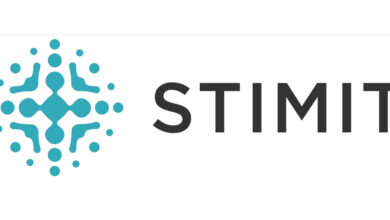
DELRAY BEACH, Fla., April 1, 2025 /PRNewswire/ — The plant biotechnology market is estimated at USD 51.73 billion in 2025 and is projected to reach USD 76.79 billion by 2030, at a CAGR of 8.2% from 2025 to 2030, according to a report published by MarketsandMarkets™.

Biotechnology of plants has changed the development of crops through the application of advanced genetic engineering techniques. These technologies have been effective in developing GM crops that enhance agricultural productivity without compromising environmental safety. These new biotechnological techniques tackle the most urgent global food production issues by designing more sustainable and productive farming solutions. The three pillars of agriculture—sustainability, scientific advancements, and the pressing need to make the world habitable—shape its future. Beyond transforming food production, emerging biotechnological methods are influencing agriculture on a larger scale. These innovations offer the potential for a more productive and sustainable agricultural system, bridging the gap between groundbreaking research and practical implementation to address global nutritional demands.
As of August 2024, the International Service for the Acquisition of Agri-biotech Applications (ISAAA) reported a total of 614 approvals for genetically modified (GM) crops globally. Maize led with 290 approved events, followed by cotton with 72 events, and potato with 52 events.
Browse in-depth TOC on “Plant Biotechnology Market”
250– Tables
56– Figures
300– Pages
Download PDF Brochure: https://www.marketsandmarkets.com/pdfdownloadNew.asp?id=225105561
The biopesticides sub-segment hold the significant market share in the crop protection & nutrition solutions segment for plant biotechnology.
Advances in plant biotechnology have contributed significantly towards the development of biopesticides. Such developments as RNA interference (RNAi) technology have made possible the creation of tailor-made pest control technologies, which are efficient and environmentally friendly. The use of such biotechnology processes has expanded the number and functionality of biopesticides and hence contributed. The EU’s Farm to Fork Strategy plans to reduce chemical pesticide usage by 50% in 2030, which will boost demand for biopesticides (European Commission, 2020). Possibly the most important development in this area is the application of genetically modified bacteria, fungi, and viruses as biocontrol tools for controlling harmful pests. For example, Bacillus thuringiensis (Bt) biopesticides contain insecticidal proteins that specifically target crop-damaging insects, reducing the need for synthetic pesticides. Additionally, advancements in RNA interference (RNAi) technology have enabled the development of biopesticides that silence essential pest genes, offering a highly specific and sustainable pest control strategy.
The fruits & vegetables segment show a significant market growth in crop type segment in plant biotechnology market during the forecasted period.
Around the world, there is a great need for fruits and vegetables. The demand for fruits and vegetables has increased due to a number of factors, including population expansion, the size of middle- and upper-middle-income groups, a well-established food industry, a well-developed supply chain, and improved trade procedures. Vegetables and fruits are essential parts of the human diet and are difficult to replace. Pome fruits, citrus fruits, leafy vegetables, root and tuber vegetables, and other kinds are all included in the fruits and vegetables section. Vegetable production and consumption continue to be important components of the world’s population’s diet, according to the FAO. Over the past ten years, the output of fruits and vegetables has increased dramatically, averaging over 3% annually. Vegetable crop cultivation is being driven by shorter growing seasons and higher revenues. Global expansion in this area is also being aided by the increased usage of commercial seeds in developing markets and the increased use of seed technology in more developed regions. The global rise in vegetable consumption is driving the market for vegetable biotech seeds, but the industry is also influenced by the findings of seed firms’ research and the advancement of innovation, which can encourage farmers to purchase vegetable seeds with higher added value.
Request Sample Pages: https://www.marketsandmarkets.com/requestsampleNew.asp?id=225105561
South America is expected to hold significant share in the plant biotechnology market.
South America is the world’s second-largest producer of GM crops, with Brazil and Argentina among the world’s top five adopters. More than 90% of soybeans, corn, and cotton produced in these nations are genetically modified as of 2023. Brazil alone produces over 55 million hectares of GM crops, mainly herbicide-tolerant soybeans and insect-resistant traits (ISAAA, 2023). Argentina, a major adopter of agbiotech, has adopted GM technology since the 1990s, with almost 100% of its soy and cotton production genetically modified. Paraguay, Uruguay, and Bolivia also make important contributions, especially in soybean production. South America has overall pro-biotech policies, with efficient approval procedures. For GM crops, Brazil’s CTNBIO (National Biosafety Commission) and Argentina’s CONABIA (Advisory Commission on Agricultural Biotechnology) allow quick commercialization of new traits. In contrast to Europe, where GMOs are subject to strict regulations, South American farmers and consumers embrace GM foods.
However, environmental activism and trade disputes (e.g., EU restrictions on GM soy imports) pose challenges. Some countries, like Peru and Ecuador, have imposed GMO bans due to ecological and cultural concerns. With continued innovation, the region is poised to address food security, climate resilience, and sustainable farming challenges. However, balancing productivity with environmental conservation will be crucial for long-term success. As gene editing and other advanced biotech tools gain traction, South America is set to remain at the forefront of agricultural innovation.
The report profiles key players such as BASF SE (Germany), Bayer AG (Germany), Corteva Agroscience (US), Syngenta AG ( Switzerland), FMC Corporation (US), UPL (India), Sumitomo Chemical Co. Ltd. (Japan), Nufarm (Australia), KWS SAAT SE & Co. KGAA (Germany), Pro Farm Group (US), Limagrain (France), STK Bio AG Technologies (Israel), Vestaron Corporation (US), Certis USA LLC (US), DLF Seeds (Denmark).
Get 10% Free Customization on this Report: https://www.marketsandmarkets.com/requestCustomizationNew.asp?id=225105561
Browse Adjacent Reports @ Agriculture Industry Market Research Reports & Consulting
Related Reports:
Seeds Market by Type (Genetically Modified, Conventional), Trait (Herbicide Tolerance, Insect Resistance), Crop Type (Cereals & Grains, Oilseeds & Pulses, Fruits & Vegetables), Treatment (Treated and Un-treated) and Region – Global Forecast to 2028
Biofertilizers Market by Type (Nitrogen-Fixing, Phosphate Solubilizing & Mobilizing, Potassium Solubilizing & Mobilizing), Mode of Application (Soil Treatment, Seed Treatment), Form, Crop Type and Region – Global Forecast to 2028
About MarketsandMarkets™
MarketsandMarkets™ has been recognized as one of America’s Best Management Consulting Firms by Forbes, as per their recent report.
MarketsandMarkets™ is a blue ocean alternative in growth consulting and program management, leveraging a man-machine offering to drive supernormal growth for progressive organizations in the B2B space. With the widest lens on emerging technologies, we are proficient in co-creating supernormal growth for clients across the globe.
Today, 80% of Fortune 2000 companies rely on MarketsandMarkets, and 90 of the top 100 companies in each sector trust us to accelerate their revenue growth. With a global clientele of over 13,000 organizations, we help businesses thrive in a disruptive ecosystem.
The B2B economy is witnessing the emergence of $25 trillion in new revenue streams that are replacing existing ones within this decade. We work with clients on growth programs, helping them monetize this $25 trillion opportunity through our service lines – TAM Expansion, Go-to-Market (GTM) Strategy to Execution, Market Share Gain, Account Enablement, and Thought Leadership Marketing.
Built on the ‘GIVE Growth’ principle, we collaborate with several Forbes Global 2000 B2B companies to keep them future-ready. Our insights and strategies are powered by industry experts, cutting-edge AI, and our Market Intelligence Cloud, KnowledgeStore™, which integrates research and provides ecosystem-wide visibility into revenue shifts.
In addition, MarketsandMarkets SalesIQ enables sales teams to identify high-priority accounts and uncover hidden opportunities, helping them build more pipeline and win more deals with precision.
To find out more, visit www.MarketsandMarkets™.com or follow us on Twitter , LinkedIn and Facebook .
Contact:
Mr. Rohan Salgarkar
MarketsandMarkets Inc.
1615 South Congress Ave.
Suite 103, Delray Beach, FL 33445
USA: +1-888-600-6441
Email: [email protected]
Research Insight: https://www.marketsandmarkets.com/ResearchInsight/plant-biotechnology-market.asp
Visit Our Website: https://www.marketsandmarkets.com/
Content Source: https://www.marketsandmarkets.com/PressReleases/plant-biotechnology.asp
Logo: https://mma.prnewswire.com/media/1868219/MarketsandMarkets_Logo.jpg
View original content:https://www.prnewswire.com/news-releases/plant-biotechnology-market-worth-76-79-billion-by-2030-exclusive-report-by-marketsandmarkets-302416598.html
SOURCE MarketsandMarkets





